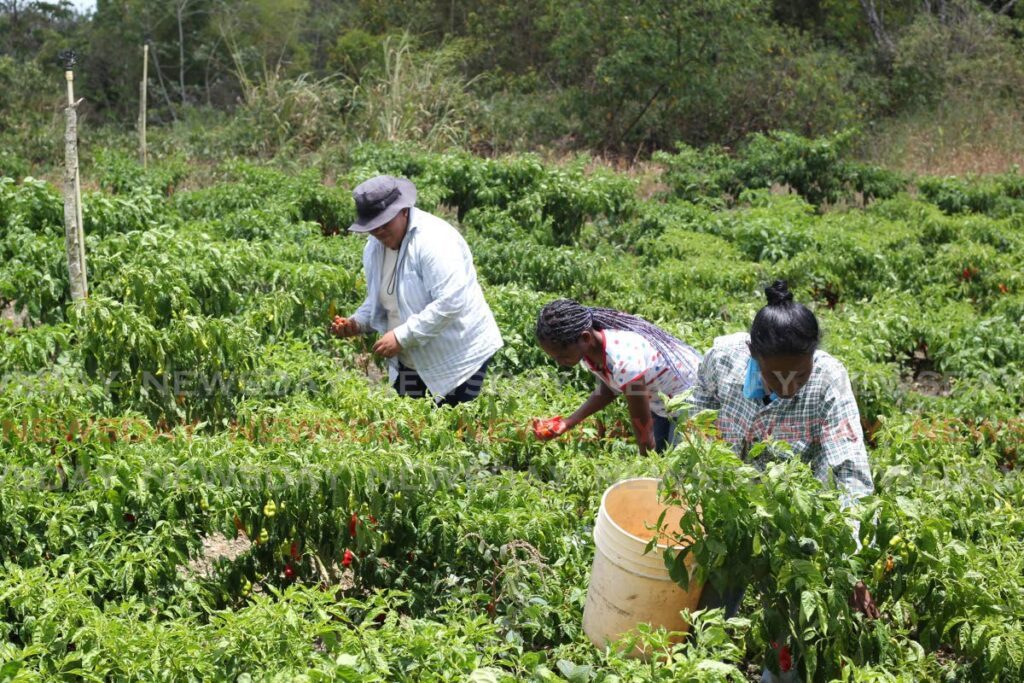Namdevco: Change farming methods to beat climate change

RAYBER BOWEN, deputy CEO National Agricultural Marketing and Development Corporation (Namdevco), says more attention should be paid to how the money allocated for agriculture is spent, rather than how much money the sector gets.
For yet another year, agriculture received the smallest allocation in the 2024 budget - $1.44 billion. It has long been viewed as one of the areas through which the economy can be diversified.
Bowen said while funding is necessary, “It is more important for us to understand where we are as a farming community and using the funding to do what is necessary to push the sector.”
He said the sector requires a push in sustainable farming and new techniques.
“With the advent of climate change, we definitely have to move from the traditional way of farming toward the technological and protective farming, which will definitely attract the youth and increase production as it pertains to the agriculture sector.”
Bowen spoke to reporters on Tuesday before the launch of the Tobago leg of the BIOREACH (Biodiversity Conservation and Agroecological and Restoration in Productive Landscapes of Trinidad and Tobago) initiative at the Shaw Park Cultural Complex.
Funded by the Global Environment Facility (GEF) to the tune of US$2.75 million, the four-year project seeks to promote biodiversity conservation, restore degraded lands and improve the livelihoods of rural communities in targeted productive landscapes – agriculture, forestry and other land uses throughout TT.
The project targets farmers, technocrats and other stakeholders in the sector.
Bowen said Namdevco, part of the executing team for the initiative, has joined forces with TADCO to carry out the project on the island.
“Through the funding that was given to this project, we intend to make farming better, help farmers improve their holdings on their farms, help them to increase productivity and bring produce in a manner which is suitable for the market that is before us presently.”
Asked about the state of agriculture in Tobago, he said, “There is high interest but production is lacking.
“Based on speaking to our partners, a lot of challenges that they would have would be to improve on procurement of equipment for the tractor pool, which is a great impediment to those doing the root crops in terms of land preparation and accessing heavy equipment to do the land preparation.
“That was a bugbear and I am assured with the acquiring of the new equipment it would be alleviated.”
Bowen believes if this is addressed production would definitely increase in Tobago.
He also believes youth interest in agriculture will increase through the Youth Agricultural Homestead Programme (YAHP), which was launched last month under the Ministry of Youth Development and National Service at the Government Plaza in Port of Spain.
The YAHP is a two-year training programme which gives young people between 18-35 an opportunity to become agribusiness entrepreneurs.
The part-time initiative offers participants, who are either employed or self-employed, the opportunity to learn agricultural best practices.
“Due to the initiatives that are before us, YAHP and under the Ministry of Youth Development, we will see an influx of young, new farmers to the sector, which will only augur well for production.”
David Persad, environmental manager, Ministry of Planning and Development and Claus-Martin Eckelmann, regional forestry officer for the Caribbean, Food and Agriculture Organisation of the United Nations (FAO/UN) also spoke.


Comments
"Namdevco: Change farming methods to beat climate change"